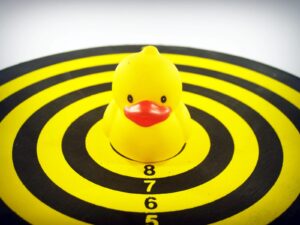It’s always great to see when L&D professionals make an effort to find data-based evidence for the effectiveness of various training and development initiatives. One day, Fuse, a digital learning tool provider (no, not LMS, but a totally different approach) joined forces with the AI Center of University College London to work for Carpetright, an international retailer with 420 outlets and 3000 employees. They wanted to find out if digital learning results in measurable performance improvement in sales.
Over the past twenty years I have had a chance to see hundreds of performance appraisal documents that had a goal setting section. An incredibly high proportion contained low quality, vague goals, such as “keep up with the good work” or “develop communication skills”. All these managers missed an opportunity to actually carry out their primary responsibilities: improve the work performance and output of their people, and help them grow.
With all my love and respect for my female friends, I have observed that many of them suffer from a lifetime challenge, which may seem rather contradictory for the careful observer: (1) they have nothing to wear, (2) how can they find storing space for that huge amount of “nothing” in her wardrobe.
Having worked with hundreds of managers intending to develop their leadership skills, I heard most of them admit that they should be devoting much more effort to providing feedback for their colleagues. They know at least two strong reasons for that.
I guess it has happened to you as well that you were burning your time in a meeting that went nowhere. The participants got lost in a problem, and the whole thing felt like kneading mud with your feet, digging yourself deeper and deeper. In most cases, you can freely choose from at least two responses to a situation like that.
Anyone who decides to study the science of motivation will soon come across the major theories of human needs. People have strong physiological urges of different sort, they want to be safe, need to relate to others, strive for all kinds of reinforcement to strengthen their self-esteem, and ideally, intend to bring the most out of their talents, i.e. to self-actualise.








